Browse in the Library:
| Artist or Composer / Score name | Cover | List of Contents |
|---|---|---|
| Waltz – Noce i Dnie OST (Nights and days) | ||
| Waltz For Debby Bill Evans (Musescore File).mscz | ||
| Waltz For Debby – Bill Evans (Complete) (Musescore File).mscz | ||
| Waltz For Debby – Bill Evans (Musescore File).mscz | ||
| Waltz From The Balet ‘coppelia’ (Musescore File).mscz | ||
| Waltz In A Minor F. Chopin (Musescore File).mscz | ||
| Waltz In E Minor Op. 39 No. 4 – Johannes Brahms (Musescore File).mscz | ||
| Ward-Jackson’s Gymnastics For The Fingers And Wrist – based On Anatomical Principles (By Edwin Ward-Jackson) 1874 |
 |
|
| Watermark (Musescore File).mscz | ||
| Watermelon Man (Musescore File).mscz | ||
| Waters of Irrawaddy (Hans Zimmer) from the movie Beyond Rangoon | ||
| Wave – Vou Te Contar Jobim (Musescore File).mscz | ||
| Wayne Shorter – Ana Maria |
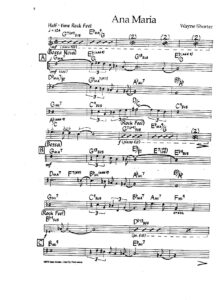 |
|
| Wayne Shorter Artist Transcriptions The New Best of |
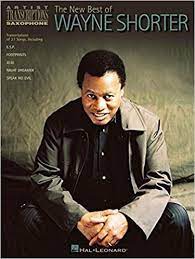 |
Wayne Shorter Artist Transcriptions The New Best of |
| Wayward Sisters – Nocturnal Animals OST (Abel Korzeniowski) | ||
| We are the champions (Queen) | ||
| We Are The World Songbook |
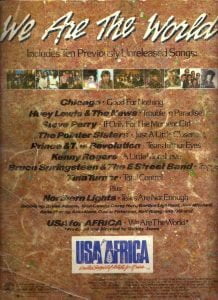 |
we are the world |
| We Shall Overcome Essays on a Great American Song (Book) by Victor B.Bobetsky |
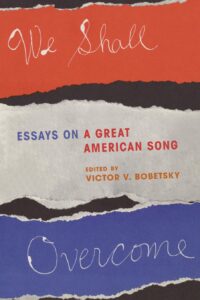 |
|
| We Wish You A Merry Christmas | ||
| We Wish You A Merry Christmas – Anonymous (Guitar arr. sheet music with TABs) | We Wish You A Merry Christmas – Anonymous (Guitar arr. sheet music with TABs) | |
| We Wish You A Merry Christmas – Guitar TABlature |
 |
|
| We Wish You A Merry Christmas (piano solo sheet music) |
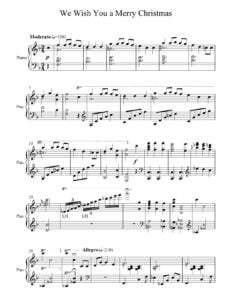 |
|
| We Wish You A Merry Christmas Trad. English Christmas carol |
 |
|
| We Wish You A Merry Christmas Trad. English Christmas carol.mscz | ||
| Weather Report – A Remark You Made (Guitar TABS) | Weather Report – A Remark You Made (Guitar TABS) | |
| Weather Report – The best of Weather Report (Full score) |
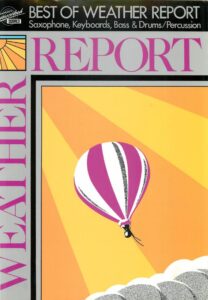 |
Weather Report – The best of Weather Report (Full score) |
| Weather Report Best Of Weather Report Band Score Book |
 |
Best Of Weather Report Us Book |
| Weber – Der Freischütz (Ouvertüre) Piano Solo arr |
 |
|
| Weber – Der Freischütz (Ouvertüre) Piano Solo arr.mscz | ||
| Weber – Der Freischutz Overture piano solo arr. |
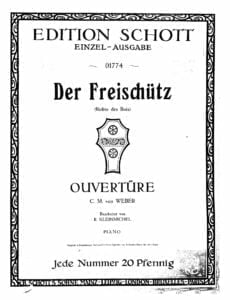 |
|
| Weber op 65 Invitation to the Dance (Invitation to the Waltz) | ||
| Weber’s Last Thought – C.M. von Weber |
 |
|
| Wedding Collection for Piano Solo |
 |
Wedding Collection for Piano Solo |
| Wednesday Morning 3 A M – Simon & Garfunkel (Musescore File).mscz | ||
| Weight Of The World – Nier Automata Piano Collections (Musescore File).mscz | ||
| Weissenberg En Avril A Paris (April In Paris) Charles Trenet |
 |
|
| Well Tempered Praise – Mark Hayes piano |
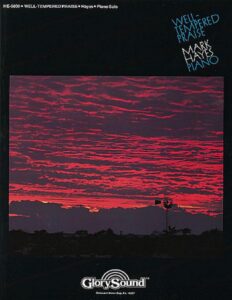 |
Well Tempered Praise – Mark Hayes piano |
| Well Tempered Praise II by Mark Hayes |
 |
Well Tempered Praise II by Mark Hayes |
| Well Tempered Praise III – Mark Hayes piano |
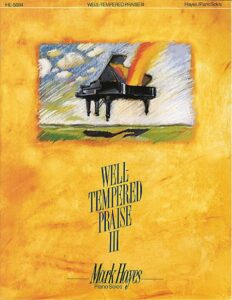 |
Well Tempered Praise III – Mark Hayes piano |
| Well Tempered Praise Vol 4 Gospel Classics by Mark Hayes |
 |
Well Tempered Praise Vol 4 Gospel Classics by Mark Hayes |
| Well-Known Piano Solos – How To Play Them (By Charles W Wilkinson) (1915) |
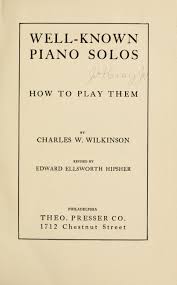 |
|
| Wes Montgomery Wine And Roses By Henry Mancini Solo Guitar |
 |
|
| Wes Montgomery – Unit 7 Solo Transcription | Wes Montgomery – Unit 7 Solo Transcription | |
| Wes Montgomery – Artist Transcriptions for guitar by fred Sokolow |
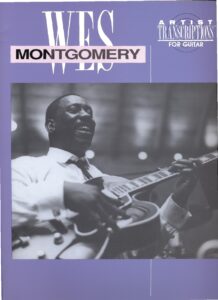 |
Wes Montgomery – Artist Transcriptions for guitar by fred Sokolow |
| Wes Montgomery – Au Privave transcription |
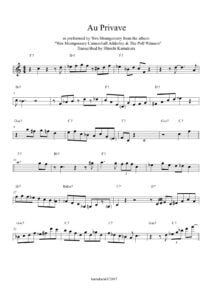 |
|
| Wes Montgomery – Days of wine and roses transcription |
 |
|
| Wes Montgomery – Take The A Train transcription |
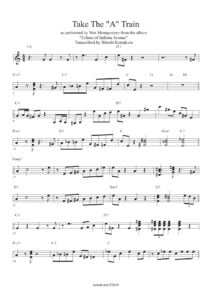 |
|
| Wes Montgomery Essential Jazz Lines (Mel Bay) |
 |
Wes Montgomery Essential Jazz Lines (Mel Bay) |
| Wes Montgomery Jazz Guitar Artistry arr. by Zafar Soood with TABs |
 |
Wes Montgomery Jazz Guitar Artistry arr. by Zafar Soood |
| Wes Montgomery Jazz No Blues Guitar |
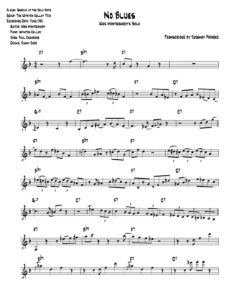 |
|
| Wes Montgomery The Early Years (Mel Bay) Jazz Guitar Solos Tablature |
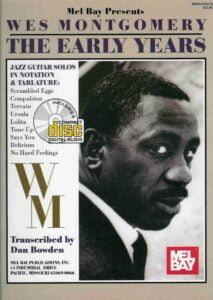 |
Wes Montgomery The Early Years (Mel Bay) Jazz Guitar Solos Tablature |
| Wes Montgomery The End Of A Love Affair Guitar Tabs |
 |
|
| West Side Story – Somewhere (Voice and Piano) Leonard Bernstein | West Side Story – Somewhere | |
| West Side Story (The Musical) Vocal Score Arthur Laurents, Leonard Bernstein, Stephen Sondheim |
 |
West Side Story Vocal Score – Leonard Bernstein |
| Westlife – Cant Lose What You Never Had | ||
| Westlife – Flying Without Wings | ||
| Westlife – If I Let You Go | ||
| Westlife – Mandy | ||
| Westlife – You Raise Me Up Guitar arr. with TABs | Westlife – You Raise Me Up Guitar arr. with TABs | |
| Westlife Unbreakable Greatest Hits |
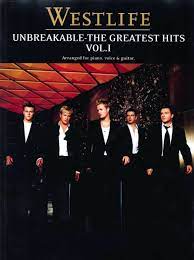 |
 |
| Wet Wet Wet – Love Is All Around | ||
| Wexford Carol (Musescore File).mscz | ||
| Wham , George Michael And Me By Andrew Ridgeley (Book) |
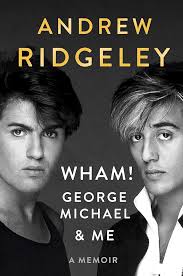 |
|
| Wham Make It Big Piano Vocal Guitar Chords |
 |
Wham Make It Big Piano Vocal Guitar Chords |
| What a Wonderful World – Thiele & Weiss |
 |
|
| What a wonderful world – Louis Armstrong.mscz | ||
| What A Wonderful World (Lead Sheet With Lyrics ) Musescore File.mscz | ||
| What a Wonderful World (lead sheet) – Thiele & Weiss | What a Wonderful World (lead sheet) – Thiele & Weiss | |
| What A Wonderful World (Musescore File).mscz | ||
| What a wonderfull World (Jazz Standard) Guitar Tablature TABs | What a wonderfull World (Jazz Standard) Guitar Tablature TABs | |
| What A Wonderlful World (Lead Sheet) (Musescore File).mscz | ||
| What You’re Made Of – Même Si (Lucie Silvas – Grégory Lemarchal | ||
| What’s That Sound An Introduction To Rock And Its History By John Covach And Andrew Flory (Book) |
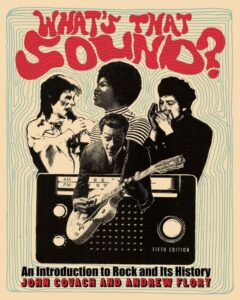 |
|
| When A Man Loves A Woman Calvin Lewis & Andrew Wright |
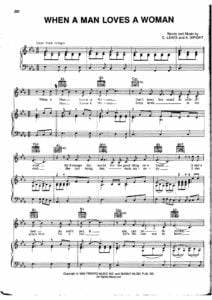 |
|
| When Almonds Blossomed – Giya Kancheli | When Almonds Blossomed – Giya Kancheli-1 | |
| When Almonds Blossomed (Musescore File).mscz | ||
| When I Fall In Love – Victor Young (Bill Evans Ver.) (Musescore File).mscz | ||
| When I fall in love Bill Evans version | When I fall in love Bill Evans version | |
| When I’m Sixty-Four (Beatles) | ||
| When Lights Are Low (Benny Carter) As Played By Miles Davis (Musescore File).mscz | ||
| When The Saints Go Marchin In – Gospel Traditional Folk song (Piano solo with Lyrics) | When The Saints Go Marchin In – Gospel Traditional Folk song (Piano solo with Lyrics) SAMPLE | |
| When The Saints Go Marching In – Fun piano arrangement | When The Saints Go Marching In – Fun piano arrangement | |
| When you told me you loved me (Jessica Simpson) | ||
| When You Wish Upon A Star (Musescore File).mscz | ||
| When You Wish Upon A Star (From The Film Pinocchio) Easy Piano Solo Arr. Sheet Music (Musescore File).mscz | ||
| When You Wish Upon A Star (Leigh Harline and Ned Washington) from Pinocchio Jazz Piano Solo arr. sheet music | When You Wish Upon A Star (Leigh Harline and Ned Washington) from Pinocchio Jazz Piano Solo arr. sheet music | |
| When You Wish Upon A Star (Solo Piano Arr ) David Dinh |
 |
|
| When You’re Gone (Avril Lavigne) | ||
| When You’re Smilling (Musescore File).mscz | ||
| Where have all the-flowers gone (guitar & voice) | Where-have-all-the-flowers-gone (guitar & voice) | |
| While your lips are still red (Nightwish) | ||
| Whistling away the dark (Darling Lili OST) Henry Mancini | ||
| White Album 2 Ending 3 Sayonara No Koto |
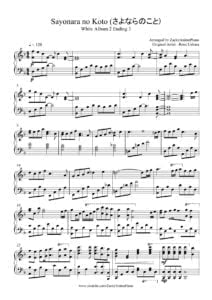 |
|
| White Christmas -Irving Berlin – Piano sheet music |
 |
|
| White Christmas Irving Berlin (Musescore File).mscz | ||
| White Christmas Medley (Liberace) | ||
| White skin like the moon (Jane Eyre 2011 OST) Dario Marianelli | ||
| Whitesnake – Here I Go Again |
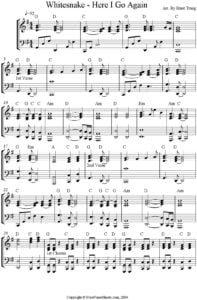 |
|
| Whitesnake Guitar Collection with TABs |
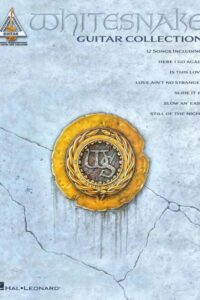 |
Whitesnake Guitar Collection with TABs |
| Whitesnake Is This Love Piano Vocal Guitar Chords | Whitesnake Is This Love Piano Vocal Guitar Chords | |
| Whitney Houston – Jesus Loves Me Sheet Music |
 |
|
| Whitney Houston The Best Of |
 |
Whitney Houston, The Best Of |
| Whitney Houston – I Will Always Love You | ||
| Whitney Houston – It’s Easy To Play Whitney Houston |
 |
Whitney Houston – It’s Easy To Play Whitney Houston |
| Whitney Houston – Saving All My Love For You | ||
| Whitney Houston – The Greatest Hits |
 |
Whitney – The Greatest Hits |
| Whitney Houston – The Greatest Love Of All | ||
| Whitney Houston I will always love you | Whitney Houston – I Will Always Love You | |
| Whitney Houston My Love Is Your Love |
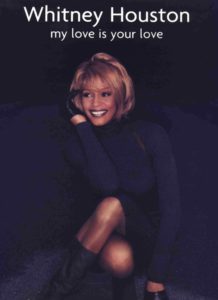 |
Whitney Houston My Love Is Your Love |
| Who wants to live forever (Queen) | ||
| Whole New World Sheet Music, A – Alan Menken |
 |
|
| Why Jazz? A Concise Guide – Kevin Whitehead (book) |
 |
|
| Wicked The Musical Sheet Music Full song Book Music and lyrics by Stephen Schwartz |
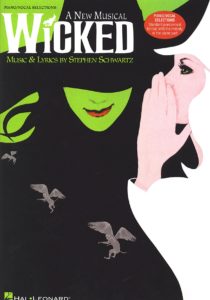 |
Wicked the musical contents — Wicked The Musical Sheet Music Full Book |
| Wieck – Piano Studies | ||
| Wiklund Adolf Fran Mitt Fonster (From my Window) Piano Solo |
 |
|
| Wild – Fantasy On Gershwin’s Porgy And Bess | Wild Fantasy On Gershwin’s Porgy And Bess | |
| Wild Gershwin Seven Virtuoso Etudes | Wild Gershwin Seven Virtuoso Etudes | |
| Wild, Earl – Gershwin Étude No. 4 based on Embraceable You Piano | Wild, Earl – Gershwin Etude No. 4 based on Embraceable You Piano | |
| Wilde Theme (Debbie Wiseman) | ||
| Wilhelm Kempff Musik Des Barock Und Rokoko – Nr. 13 Menuett G-Moll G.F. Händel (Musescore File).mscz |
Carl Czerny, Viena (Austria) 1791 – Viena (Austria) 1857
Piano Technique:
Czerny – The School of Velocity Op. 299 No. 39 (sheet music)
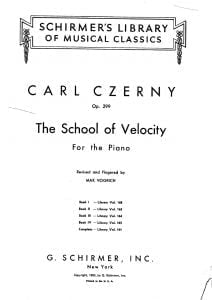
Czerny – Le Perfectionnement, Op.755, No. 24 (with sheet music, partition)
Czerny – 100 Progressive Studies, Op 139 No 1
Czerny – 30 New Studies in Technics Études de Mécanisme Vorschule zur Schule der Gelaeufigkeit Op. 849 No. 1
Czerny – 30 New Studies in Technics Études de Mécanisme Vorschule zur Schule der Gelaeufigkeit Op. 849 No. 2
Czerny – 100 Progressive Studies, Op.139 No. 16 to No. 20
Carl Czerny. Biography
- Date of Birth, February 21, 1791
- Place of birth, Vienna, Austria
- Deceased July 15, 1857 (at the age of 66)
Few composers have been as interpreted as Carl Czerny in the history of music, and yet little is spoken or written in Spanish about this Viennese composer of the early romantic period.
“Hated” by numerous and still current generations of students and appealed for its virtues by the same number of teachers; Czerny stood out above all for the great legacy of his important didactic work, an area that few composers usually dare to tackle, and in which only some -and very few- are successful.
Owner, moreover, of an important and unjustly ignored instrumental work; Czerny’s didactic work is a milestone in the history of pedagogy and his incessant effort and work deserve fair recognition.
Karl Czerny was born on February 21, 1791 in Vienna, the Imperial and Music-loving Capital of Austria, curiously the same year as Mozart’s death.
His father, Wenzel (Václav) Cerný (The surname “Cerný” was later Germanized to “Czerny”, born in Nimburg in 1750, was a talented musician, amateur violinist (like his own father, Karl’s grandfather), who He had been educated in a Benedictine monastery in Prague (today the capital of the Czech Republic) and, in addition to the violin, he played oboe, organ and pianoforte with great talent.
Settling in Vienna in 1786 with his wife, Wenzel established himself as a skilled music and piano teacher and years later gave birth to their only son, Karl Czerny. Still living in Austria, the family maintained a strong attachment to Czech culture, and, in fact, little Czerny did not speak German until he was 10 years old.
During the early years of his life, Karl Czerny took keyboard lessons from his father, and soon demonstrated remarkable compositional and performance skills.
His first attempts at musical writing (never published) began around the age of seven, and in fact by age ten he was able to play “…clearly and fluently any composition by Mozart and Clementi…”, a virtuosity that went hand in hand with his comprehensive and surprising lifelong study of the work of Ludwig V. Beethoven (1770-1827).
In his autobiographical notes, Czerny once described his childhood as “carefully isolated from other children”, and after those first years of permanent study with his father, he continued his training with fellow Czech Wenzel Krumpholz (pianist and violinist of the Orquesta of the Imperial Court, 1761-?).
In 1800, at the age of 9, Karl gave his first concert in his hometown, the Concerto in C minor K. 491. Mozart’s own style had impressed him very favorably years before, listening to the same concerto performed by Johann Nepomuk Hummel. (1778-1837), of Slavic-Hungarian origin and sometime a disciple of Mozart.
The following year, his teacher introduced him to Beethoven, and he performed for him the first movement of Mozart’s Piano Concerto in C Major K. 503 and Beethoven’s own “Pathetic” Sonata. From then on, Czerny became not only a devoted disciple of Ludwig but also an important disseminator of his work and a dedicated and careful interpreter of the new piano forms.
Ludwig once wrote of him: “…I who sign below have the pleasure to testify that young Carl Czerny has made an extraordinary advance on the piano, beyond what could be expected at the age of fourteen. I think he deserves all possible help, not only for what I have just stated, but for your amazing memory… “
Ludwig once wrote of him: “…I who sign below have the pleasure to testify that young Carl Czerny has made an extraordinary advance on the piano, beyond what could be expected at the age of fourteen. I think he deserves all possible help, not only for what I have just stated, but for your amazing memory… “
So close was the relationship between the two that Beethoven entrusted Czerny, years later, with the musical education of his nephew Carl, although he never stopped correcting and suggesting study and fingering techniques.
Parallel to his career as an interpreter, Czerny at the age of 15 began to venture into teaching.
At the age of 19, he met the great Italian pedagogue Muzio Clementi (1752-1832) in Vienna, whose work “Noveau Gradus ad Parnassum” had an impact on our composer and inspired him in his subsequent and magnanimous didactic creation.
Despite Czerny being an excellent performer, with virtuosic mastery and unrivaled ease and memory, at the end of his adolescence he abandoned his career as a performer and devoted himself almost entirely to teaching piano and composition.
His dedication as a teacher (more than hard, since he gave classes during the day and composed for the students at night) began to bear fruit, and very soon his name acquired fame in bourgeois and aristocratic circles, who competed to take lessons with him. Many of his disciples followed his didactic line, such as Liszt’s famous rival, Sigismond Thalberg (1812-1871); the Hungarian Stephen Heller (1813-1888) and the legendary Polish piano teacher Theodor Leschetizky (1830-1915).
One of his most important students, however, is Ferenc (Franz) Liszt (1811-1886), to whom he taught from 1822 and for two years. The Austro-Hungarian composer dedicated his “Transcendental Studies” to Czerny.
Fryderyc Chopin (1810-1849) also visited the Master in 1829, although Chopin did not retain a favorable opinion of Karl… (Although Chopin and Czerny maintained a prolific correspondence (which is still preserved today), in which they expressed mutual admiration , Chopin did not always have a good opinion of Karl’s music.
Although it may be common that Chopin did not get good first impressions of people (remember the accounts of the Pole when he first saw the writer George Sand), he was many times unfair in his comments to third parties.)
“…He is a good guy (…) but nothing more (…) he has arranged another overture for eight pianos and sixteen pianists and seems delighted with it” (…) “Czerny was warmer than any of his compositions” Chopin said ironically, after to visit him for the first time in Vienna.
At this time, Czerny already had an enormous number of compositions, which reached over opus 800 (symphonies and chamber works that were not well received by critics), and many of them were technical studies and development exercises for pianists: hundreds of works that are today the foundation of the study of the instrument.
All of his didactic works were quickly published in Vienna, and with such success among the public that these studies are still included in the programs of all conservatories in the world today.
Among these pieces, “The School of Speed” and “The Art of Fingering” stand out.
Czerny’s literal career as a composer began in about 1812, after copying many works by Bach, Scarlatti, and other early composers.
He occupied his free hours studying the art of orchestration and composing, first essays, then complete works, symphonies and piano works.
In his chamber works (sonatas for piano four hands, piano and strings, etc.), a notable Beethovenian influence is perceived.
Very unfortunately, many of his works were never published, especially sacred choral works (Masses, Offertories, Graduals, etc.). In addition, little material has been recovered from his early days as a composer, as Czerny did not keep an organized record of each of his works at that time.
His deep sensitivity and delicacy of style can be seen in works such as his “Sentimental Sonata in C minor, Op. 10 for four hands”; or in his Piano Concerto in C Major, Op. 153.
His very dedication to teaching demonstrates his dedication and his love for the piano.
At the age of 51, Karl begins to write a few short autobiographical notes, a custom more than widespread in the romantic era, “Erinnerungen aus meinen Leben” (“Memories of my Life”, recently published in Austria.
Czerny led a rather solitary life, living with his parents until his mother’s death in 1827 and his father’s death in 1832. He never married, living alone until the day he died.
Despite not having close relatives, he did have many cats (his students always commented on this eccentricity), and, when he was not composing or teaching, he devoted himself entirely to his animals.
On July 15, 1857, at the age of 66, Karl Czerny died at his home in Vienna. His considerable fortune made as a teacher, composer and performer was donated to the Vienna Conservatory and numerous charitable institutions. Many of his works were unfairly forgotten; and his pedagogical work, which today is divided into four categories, continues to be an iron mainstay in the study of every pianist who begins a correct preparation of his technique.
The Ukrainian-Romanian composer and musicologist Eusebius Mandyczewski (1857-1929) cataloged and prepared several Czerny editions, including more than 300 sacred works, as well as finding numerous misplaced manuscripts.
Your contribution has also been very valuable in the recognition of this author. Still not receiving the best of attention from the critics of his day (not, at least, not by Schumann in his important music newsletter), Czerny was quite appreciated by numerous people who trusted him as a teacher and pedagogue.
Czerny’s work as a composer and teacher must be recognized as such; because he comes to life every day on the stands of thousands of pianists who give their effort and passion to the instrument.
The work of the hard-working teacher who taught by day and composed by night is an inspiring figure we should think of as we approach his vast and loving oeuvre.
In 1821, the nine-year-old Franz Liszt began a two-year period studying piano with Czerny. The teacher remarked that he had ‘never had such an impatient, talented and hard-working pupil’, but Czerny lamented that Liszt had begun his performance career too early, and without adequate or sufficient training in composition. But Liszt was an impatient student, despite his youth promising a long life as a virtuoso performer.
He also had as students Anna Caroline Oury, Theodor Döhler, Leopold von Meyer, Louis Lacombe, Albert Sowinski, Sigismund Thalberg, Alfred Jaëll and Queen Victoria, and already at the end of his profession Ivan Ivanovich Armsheimer and to Friedrich Brandeis.
Czerny did not consider his ‘brilliant concert pieces’ to be ‘serious music’. But in this category, he placed his symphonies, overtures, and concertos for piano, many of which are still unknown today, and some of them languish among his hundreds of unpublished manuscripts.
In addition to many technical studies, Czerny published sonatas, sonatinas and hundreds of shorter works, many of which were arranged for piano for four hands in various editions.
He also published a plethora of works based on the national anthem, popular songs, and other well-known songs. In addition to all the compositions cited during the biography, he left the works written in German: Praktische Schule der Composition (Bonn, 1840), and Umriss der Musikgeschichte (Mainz, 1851).
Czerny’s works include a large number of masses, Requiems, symphonies, concertos, sonatas and string quartets. None of these works are regularly performed today. Nevertheless, Czerny’s numerous didactic works for piano continue to be used in the teaching of this instrument.
The composer and musicologist Johann Theodor Viehmeyer (1870-1947) published his work Schule der Virtuosen.
